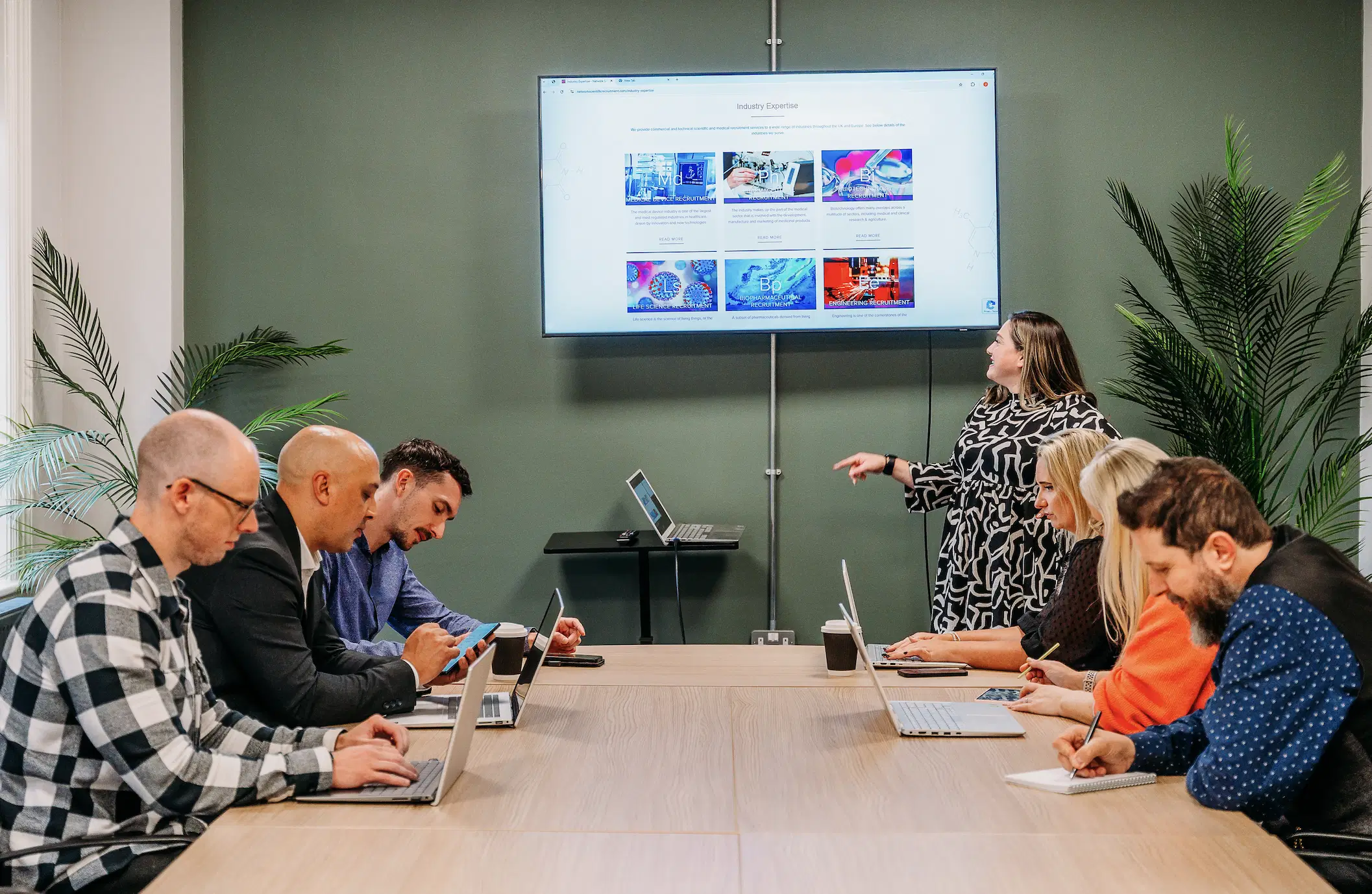Medical Device Recruitment
We have been offering our award-winning medical device recruitment services for over 15 years! Our Medical Device recruiters cover a range of medical device jobs; including sales, marketing, technical, regulatory, manufacturing, and clinical support functions.
Medical Device Recruitment Agency
Network Scientific specialise in medtech and medical device recruitment, offering unparalleled expertise and industry insight. With over 50 years of experience in the medtech industry, our dedicated medical device recruitment consultants are recognised as trusted experts in sourcing top talent across the sectors.
As a leading medical device recruitment agency, we’ve successfully partnered with a diverse range of organisations, from innovative start-ups and agile SMEs, to established global medical device companies. We support recruitment across the full spectrum of medical device jobs, including:
- Medical Device Production
- Laboratory and Technical Positions
- Quality Assurance and Regulatory Affairs
- Medical Device Sales and Marketing
- Medical Device Executive Search
Our medical device recruitment services span all major therapeutic areas, including; cardiology, diagnostics, critical care, orthopaedics, urology, and neuromodulation, among others.
Whether you’re a candidate exploring medical device careers and looking for medical device jobs, or a company seeking to attract high-calibre professionals, Network Scientific delivers award-winning recruitment solutions tailored to your needs. Discover why we’re a trusted name in medical device recruitment.
The Medical Device Industry
The medical device market is one of the largest and most regulated sectors in healthcare. Medtech is a dynamic industry, continually evolving, driven by innovation, digital transformation and the growing demand for advanced diagnostic and therapeutic solutions. The sector is a hub for exciting job opportunities that support medical device development, manufacture, procurement, and distribution.
What are Medical Devices?
Medical devices relate to all medical technologies designed for disease management, prevention, diagnosis and treatment. For individuals seeking impactful careers in healthcare technology, the medical device industry presents the opportunity for a meaningful career.
Medical devices encompass a broad spectrum of technologies designed to prevent, diagnose, monitor, or treat medical conditions. These range from simple consumables such as test strips and syringes, to complex systems such as robotic surgical equipment, smart wearables, and AI-powered diagnostic platforms.
The sector is continuously shaped by innovations that aim to enhance patient outcomes by detecting, measuring, restoring, or modifying physiological functions and anatomical structures. As such, the demand for skilled professionals in medical device engineering, clinical support, and technical services remains high.
Medical Device Market Trends
The global medical device industry is projected to reach a value of $572 billion in 2025, with a compound annual growth rate (CAGR) of 6.5% expected through 2032. While the United States continues to lead the market, the United Kingdom remains among the top five countries in terms of medical device revenue and innovation.
In the UK, the medical device sector is home to over 3,000 companies, ranging from innovative start-ups to global manufacturers. As the industry grows, so does the demand for specialist talent—making effective medical device recruitment more critical than ever.
Key drivers of growth within the sector include:
- Technological innovation (AI, robotics, connected devices)
- Aging populations and increased healthcare demand
- Regulatory changes such as MDR and IVDR
- Post-pandemic investment in digital health and diagnostics
The medical device industry is evolving at an unprecedented pace, driven by AI developments, innovations in robotics, and non-invasive diagnostics. Behind every breakthrough is a team of skilled professionals. The medical device recruitment team at Network Scientific specialise in helping companies build agile, future-ready teams that can bring life-changing technologies to market. From R&D and regulatory affairs to quality assurance, manufacturing, and sales, we connect you with the talent that drives progress.
Whether you’re developing and launching a new device, navigating MDR/IVDR compliance, or scaling your operations, we provide flexible staffing solutions tailored to your needs. With a deep understanding of the sector and a proven track record, we’re here to help you stay competitive in a fast-moving, high-stakes industry.
Our Medical Device Recruitment Services
We offer a full service medical device recruitment service for our clients. Whatever your requirement; production, quality control, reguatory affairs, sales and marketing to C-Level appointments, we’ve got you covered!
The Network Scientific Recruitment team have extensive experience in medical device and medtech recruitment, and we’re passionate about supporting the growth and development of businesses and careers in the market.
Network Scientific: Expert Medical Device Recruitment

We understand the unique demands of the industry and offer customised medical device recruitment solutions to fit your specific needs. This expertise not only earns us multi-award-winning recognition but has also established us as a trusted partner in delivering top talent.
We aim to facilitate the next generation of candidates ready to revolutionise the medical device sector. Our focus is on more than just filling positions; we are dedicated to finding the perfect fit for both client and candidate by aligning niche skills, values, and business culture. From this, your hiring strategy is in the best position to deliver growth and innovation.
To discover more about our medical device recruitment services, get in touch, one of our friendly medical device recruitment consultants would be delighted to speak with you.
